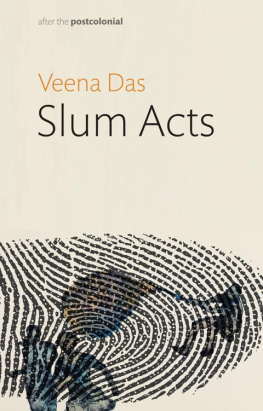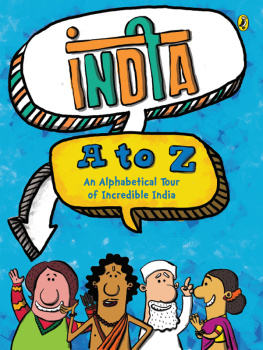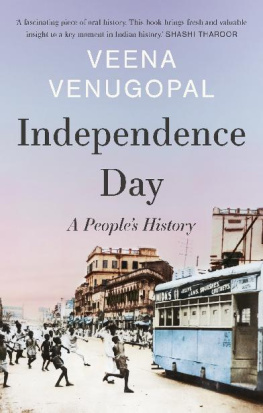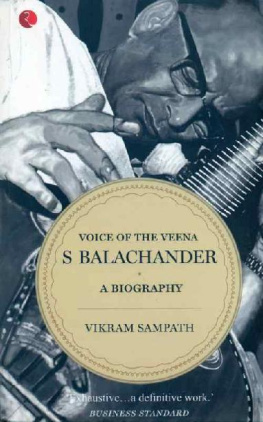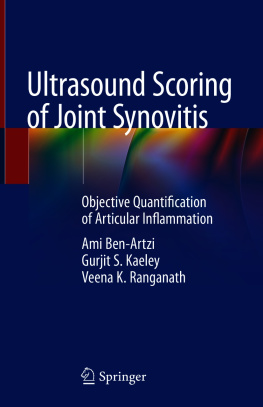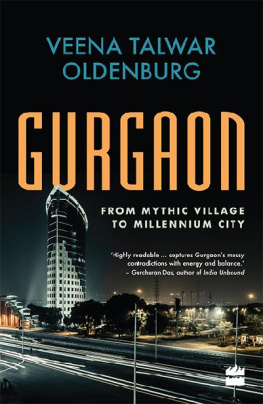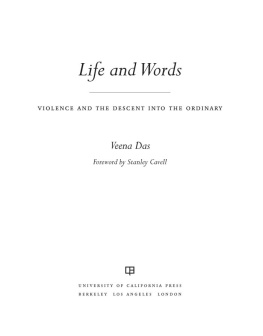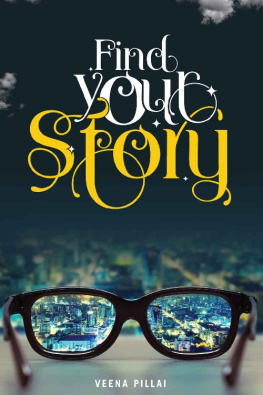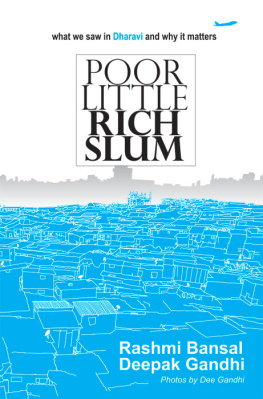Veena Das - Slum Acts (After the Postcolonial)
Here you can read online Veena Das - Slum Acts (After the Postcolonial) full text of the book (entire story) in english for free. Download pdf and epub, get meaning, cover and reviews about this ebook. year: 2022, publisher: Polity Press, genre: Politics. Description of the work, (preface) as well as reviews are available. Best literature library LitArk.com created for fans of good reading and offers a wide selection of genres:
Romance novel
Science fiction
Adventure
Detective
Science
History
Home and family
Prose
Art
Politics
Computer
Non-fiction
Religion
Business
Children
Humor
Choose a favorite category and find really read worthwhile books. Enjoy immersion in the world of imagination, feel the emotions of the characters or learn something new for yourself, make an fascinating discovery.
Slum Acts (After the Postcolonial): summary, description and annotation
We offer to read an annotation, description, summary or preface (depends on what the author of the book "Slum Acts (After the Postcolonial)" wrote himself). If you haven't found the necessary information about the book — write in the comments, we will try to find it.
Slum Acts (After the Postcolonial) — read online for free the complete book (whole text) full work
Below is the text of the book, divided by pages. System saving the place of the last page read, allows you to conveniently read the book "Slum Acts (After the Postcolonial)" online for free, without having to search again every time where you left off. Put a bookmark, and you can go to the page where you finished reading at any time.
Font size:
Interval:
Bookmark:
A series sponsored by the Smuts Memorial Fund University of Cambridge
AbdouMaliq Simone, Improvised Lives Veena Das, Slum Acts
Veena Das
polity
Copyright Veena Das 2022
The right of Veena Das to be identified as Author of this Work has been asserted in accordance with the UK Copyright, Designs and Patents Act 1988.
First published in 2022 by Polity Press
Polity Press
65 Bridge Street
Cambridge CB2 1UR, UK
Polity Press
101 Station Landing
Suite 300
Medford, MA 02155, USA
All rights reserved. Except for the quotation of short passages for the purpose of criticism and review, no part of this publication may be reproduced, stored in a retrieval system or transmitted, in any form or by any means, electronic, mechanical, photocopying, recording or otherwise, without the prior permission of the publisher.
ISBN-13: 978-1-5095-3787-7
A catalogue record for this book is available from the British Library.
Library of Congress Control Number: 2021942993
The publisher has used its best endeavours to ensure that the URLs for external websites referred to in this book are correct and active at the time of going to press. However, the publisher has no responsibility for the websites and can make no guarantee that a site will remain live or that the content is or will remain appropriate.
Every effort has been made to trace all copyright holders, but if any have been overlooked the publisher will be pleased to include any necessary credits in any subsequent reprint or edition.
For further information on Polity, visit our website:
politybooks.com
I was privileged to be invited to deliver the Smuts Lectures at the University of Cambridge in 2018 and want to thank Professors Ash Amin, Sruti Kapila, and Saul Debow for this invitation and the intellectual stimulation they provided during my visit. Professor Amin graciously steered discussions during the public lectures and seminars, creating an environment of intellectual excitement and vibrant exchange of ideas. I want to thank particularly James Laidlaw, Marilyn Strathern, Caroline Humphrey, Joel Robbins, Heonik Kwon, Perveez Mody, and David Mosse for their critical attention to the details that allow concepts to emerge within the ethnography.
Over the years, I have learnt much from discussions with Clara Han, Nayanika Mookherjee, Bhrigupati Singh, Sruti Chaganti, Pooja Satyogi, Aditi Saraf, Megha Sehdev, Kunal Joshi, Vaibhav Saria, Anna Wherry, Pratiksha Baxi, Didier Fassin, and Naveeda Khan on matters relating to law, policing, and surveillance. During the period of intense isolation and repeated illnesses of the COVID year that I lived through, I was privileged to count on Andrew Brandel, Michael Puett, Lotte Segal, and Nayan Das to be with me to form a protective circle that sustained thought through words and gestures of care. With what words can I thank my friends Deepak Mehta, Rita Brara, Pratiksha Baxi, and Roma Chatterji? Roma allowed me access to a trunkful of court documents she had collected but was not planning to work with; and Deepak, Pratiksha, and Rita shared insights on events for which I could not be present in Delhi. My family members, from the oldest to the youngest, have astonishing abilities to be supportive and critical at the same time so, thank you guys for not giving up on me. I also want to thank the doctors, nurses, and staff of Ellison 10 at Mass General Hospital for their outstanding teamwork, expertise, and care; and my gratitude goes to Drs. Das, Iyasere, and Simmone for guiding me toward recovery.
I gratefully acknowledge the kindness of Professor John Thompson, Neil de Cort and Julia Davies at Polity Press, and Professor Amin once again, in steering the book toward completion. Thanks to Ian Tuttle for excellent copy-editing. I wish David Held had been there for continuing our conversations along with Eva-Maria Nag, and Nayanika Mookherjee at Durham. I so miss not being able to share this work with David.
I want to thank the two anonymous reviewers whose comments were incredibly helpful in making revisions to the book at a time when I was not able to see my way through the difficulties this material presented. I am more grateful than I can say to the residents of the neighborhoods in Delhi where I have worked for sharing their lives with me and my colleagues at the Institute for Socio-Economic Research on Development and Democracy (ISERDD).
This book is dedicated to Abdul Wahid Shaikh, whose courage, integrity, and intellectual provocations to make thought count make it a privilege to be able to claim him as a friend.
Veena Das
Baltimore, July 2021
Introduction
Slum Acts is written in these ominous times when the surveillance apparatus of the state in India is being used to curb all dissent, accompanied by a draconian curbing of political liberties and dismantling of the research infrastructure that once allowed the social sciences to flourish in India. Simultaneously, global theories of violence, civil war, terrorism, torture, or policing demonstrate the increasing influence of the security apparatus of the state on academic writing (Whitehead 2012). A global discourse on the threat of international terrorism has allowed reputed scholars to defend the use of torture by the evocation of scenarios of extreme emergency and, while much discussion has focused on the brutality of civil wars waged by non-state actors, the role of states as collaborators of these non-state actors, as financiers of the weapons used in civil wars, or the direct violence perpetrated at a distance by states through drone attacks, carpet bombing, or torture in offshore prisons, is made to disappear. This book takes on the problematic of the violence perpetrated through the security apparatus of the state and its relation to judicial logic applied in both states of emergency as well as in the hurly-burly of everyday urban life. The close relation between policing and urban existence was of much interest to Foucault (2008) but while he was looking at police ordinances and absorption of disbanded solders at the end of war, Slum Acts asks how the imagination of slums as specific sites of urban disorder comes to be connected with the imaginary of transnational terrorism. And though from a distance it might seem that judicial logic in the case of regulation of urban populations might be very different from the judicial logic in the case of terror trials, we find surprising resonances between the two. This is not to say that the specter of terrorist violence does not produce an intensification of cruel practices in the way police investigate terror-related cases but that there is no sharp dividing line between the two.
I do not start with a set of ready-made concepts which I can simply apply to the questions that animate this book, but perhaps I can say how my questions developed as a result of a long-term ethnography of what I call urban slums here as a short-hand term, but which can include many different categories of spaces defined primarily through their relation to the classifying and regulating mechanisms of urban governance. (For my work on these localities, see especially Das 2011, 2014, 2020; Das & Walton 2015.) I will introduce these areas, briefly commenting on my use of the term slum, but first, let me lay out the questions I explore.
First, I in am interested in asking how to understand the temporality of a catastrophic event such as a series of terrorist attacks on a city. In media representations and in one reading of the judicial process, what follows a terrorist attack is a series of linear actions the event, its investigation, court trial, and fixing of responsibility, followed by sentencing and punishment. This particular idea of the event, as bounded and occurring in a linear succession of actions, often obscures from view the actual bundling of smaller events which cluster together and radiate in different directions, such as identifying suspects, interrogations, production of police documents, witness statements, court hearings, postponements, compromises; I argue that it is in these details that one can find the way something like a terror-related investigation spreads its tentacles into communities from which suspects are picked up, relatives and friends are forced to give testimonies against them, and whole communities are stigmatized and rendered guilty by association. Further, I ask, how are cruel and inhuman punishments, including torture, absorbed into the life of communities? I examine the relation between subjugated knowledges and what I call inordinate knowledge to retrieve and take forward the writings of a torture survivor, Abdul Wahid Shaikh, to claim for his incredible writing the status of social theory that undoes the plethora of justifications for torture that have been crafted by learned jurists and professors.
Font size:
Interval:
Bookmark:
Similar books «Slum Acts (After the Postcolonial)»
Look at similar books to Slum Acts (After the Postcolonial). We have selected literature similar in name and meaning in the hope of providing readers with more options to find new, interesting, not yet read works.
Discussion, reviews of the book Slum Acts (After the Postcolonial) and just readers' own opinions. Leave your comments, write what you think about the work, its meaning or the main characters. Specify what exactly you liked and what you didn't like, and why you think so.

